Announcement
Collapse
No announcement yet.
Europe IV: The Final Hour
Collapse
This topic is closed.
X
X
-
Yes please! Split that gammon vote between Tories, Brexit Party and UKIP.
Are UKIP still a thing?
I saw their party leader stepped down this week, so they're now looking for their seventh leader since the referendum.
That wasn't massively interesting, but the fact his name is Richard Braine lead to all sorts of hilarious puns about Dick Braine.
Joking aside, I'm trying to avoid the superficial criticisms of politicians. It's funny to laugh at small hands, pig humping or crazy hair, but they're just distractions. They want you to talk about anything other than their policies a lot of the time. Except Trump, who really is Rumpled Thinskin.
Comment
-
Latest polling from PanelBase shows the Tories pull out another 4 points from their previous poll on 17th Oct. This poll done yesterday
Westminster
Con 40% (+4%)
Lab 29% (+2%)
Lib Dem 14% (-3%)
Brexit Party 9% (-2%)
Green 3% (NC%)

Definitely encourage you to play on the fears of your Tory voting friends who are more hard leave than soft that unless they vote for Farage, they won't get a Brexit. Split that vote is the key to stopping a Tory majority.Last edited by MartyG; 01-11-2019, 12:37.
Comment
-
I can't get over how insane politics have been in the last couple of months, and yet still the Tories are out in front.
I fee like reposting my They Live Johnson pic, because I can't believe people are seeing him as a good leader. He can't lead his own personal life in a responsible manner, let alone his party, and certainly not the country.
https://www.euronews.com/2019/09/30/brexit-timeline-boris-johnson-s-month-of-turmoil-in-september
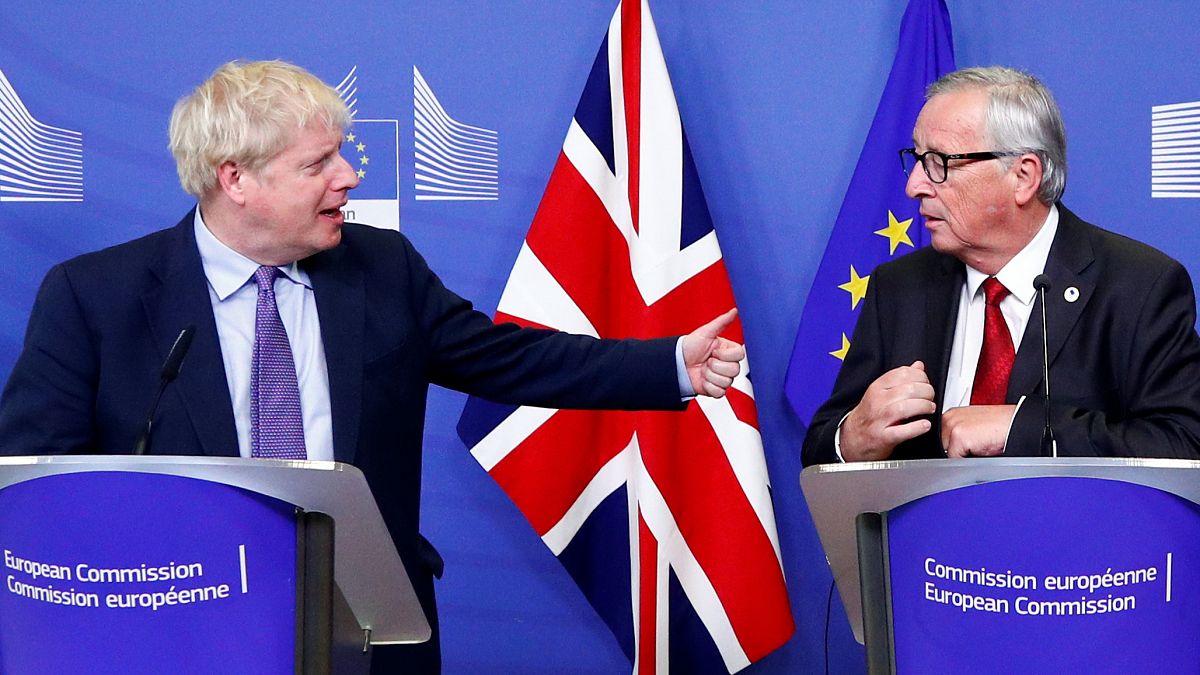 Key events in another rollercoaster month: a deal was struck, but Brexit was delayed once again as the Halloween deadline was missed.
Key events in another rollercoaster month: a deal was struck, but Brexit was delayed once again as the Halloween deadline was missed.
September 2: UK lawmakers publish their plan to take a no-deal Brexit off the table. The European Union (Withdrawal) (No. 6) Bill 2019 – dubbed the Benn Bill after its co-sponsor, Labour MP Hilary Benn – aims to block the UK from leaving the EU on October 31 without a deal, unless parliament consents.
September 3: the UK parliament returns to business after its summer recess. Boris Johnson holds last-minute talks with Conservative opponents of his no-deal stance but fails to prevent the threatened rebellion. The government loses its majority-of-one in the House of Commons when one MP, Philip Lee, crosses the floor to join the Liberal Democrats. Twenty-one Tory MPs later vote against the government, which duly suffers a historic defeat by 27 votes, allowing lawmakers to seize control of the parliamentary agenda. The rebels are stripped of the Conservative whip, effectively expelling them from the party.
September 4: MPs vote on the Benn Bill, which sails through the House of Commons (with a majority of 29). The government abandons a plan to block it in the House of Lords. The prime minister loses a third consecutive vote in the lower chamber, when MPs refuse to allow him to call a general election in mid-October.The government abandons plans for an immediate end to free movement from the EU after Brexit.
September 5: Boris Johnson suffers a further blow when his brother Jo Johnson resigns as a minister and says he will stand down as an MP – saying he is “torn between family loyalty and the national interest”. In a speech to police recruits in West Yorkshire, the prime minister says he would “rather be dead in a ditch” than seek another Brexit delay.
September 6: the Benn Bill is passed by the House of Lords, clearing the way for royal assent. Opposition parties agree to rule out a general election before October 31 Brexit deadline. A legal case brought by campaigner Gina Miller and backed by former prime minister John Major, against the government for suspending parliament, is dismissed from the High Court. (The Queen agreed in late August to the prime minister’s request to suspend parliament for five weeks in September and October.)
September 7: Amber Rudd resigns from the government. The Work and Pensions Secretary blames Boris Johnson’s approach to Brexit, claiming there is no evidence the government has serious plans for a deal with the EU – and attacking the expulsion of the Tory rebels as an “assault on decency and democracy… (an) act of political vandalism”.
September 8: Government ministers stress that the UK will leave the EU on October 31, and may look for ways around the anti no-deal legislation.
September 9: Boris Johnson meets Irish Prime Minister Leo Varadkar in Dublin. The meeting is described as constructive but brings no breakthrough over the Irish border. In the UK parliament, the government again fails to secure an October election in another Commons vote. Parliament is finally prorogued in the early hours of the morning, amid raucous scenes in the chamber.
September 10: Labour leader Jeremy Corbyn tells the Trades Union Congress (TUC) that the Conservatives are intent on “hijacking the referendum result to shift even more power and wealth to those at the top”. Northern Ireland unionists from the DUP dismiss reports that the government is considering softening its opposition to the Irish backstop.
September 11: the High Court judgement vindicating the government over the prorogation of parliament is published, saying it was “not a matter for the courts” and a “purely political” decision. However, in Scotland the government loses in another legal challenge. Edinburgh’s Court of Session rules that the suspension was unlawful because "it had the purpose of stymying Parliament”. There is more damage for the government with forced publication of its “Operation Yellowhammer” documents, giving a grim assessment of the potential impact of a no-deal Brexit.
September 13: House of Commons Speaker John Bercow vows to allow “creativity” if the prime minister ignores a law designed to block no-deal.
September 15: in a newspaper interview Boris Johnson compares the UK to the Incredible Hulk in its struggle to break free of the EU’s “manacles”. The assertion is ridiculed in EU circles. Cold water is also poured on the UK government’s claims that progress has been made towards a deal.
September 16: The prime minister meets European Commission President Jean-Claude Juncker in Luxembourg and they agree to intensify talks. The headlines highlight Johnson’s non-appearance at a planned joint news conference with Luxembourg’s prime minister, due to a noisy anti-Brexit protest. Xavier Bettel faces the press alone, saying the EU will not be portrayed as the “bad guy” if no deal is reached.
September 17: the UK’s Supreme Court begins its hearing on the legality of the prime minister’s suspension of parliament. Liberal Democrat leader Jo Swinson tells the party conference in Bournemouth she would cancel Brexit by revoking the EU’s Article 50 “on day one” of a Lib Dem government.
September 18: the European Parliament votes to allow a Brexit delay by extending the UK’s EU membership, in the event of such a request. Jean-Claude Juncker tells MEPs the risk of a no-deal Brexit remains "very real". Antii Rinne, Prime Minister of Finland which currently holds the European Council presidency, gives Johnson until the end of the month to set out his Brexit plans, or “it’s over”.
September 19: former Conservative prime minister John Major tells the Supreme Court via his lawyer that Boris Johnson must have had “ulterior motives” for proroguing parliament. The EU confirms that the UK has finally sent proposals for replacing the Irish backstop.
September 21: an opinion poll gives Boris Johnson's Conservatives a 15-point lead over Labour.
September 23: opposition Labour leader Jeremy Corbyn wins support for his strategy, as the divided party’s annual conference in Brighton votes to remain neutral for now over whether to leave or remain in the EU. The plan is to win an election, renegotiate the Brexit deal and then decide the party’s stance before a second referendum. EU chief negotiator Michel Barnier says the UK government’s stance is “unacceptable”.
September 24: the Supreme Court launches a constitutional bombshell by ruling unanimously that the government’s suspension of parliament was unlawful. Court President Brenda Hale says it stopped parliament from carrying out its “constitutional functions” without good reason. MPs are summoned back to the House of Commons to meet the next day. Boris Johnson, in New York for the UN climate summit, says “I strongly disagree with this judgement”.
September 25: Boris Johnson, back in London, urges MPs as parliament resumes to call a vote of no-confidence in the government, to allow an election. “Will they have the courage to act?” he goads, vowing to refuse to seek a Brexit delay. Amid a foul-tempered session, his language is condemned as “inflammatory” and “dangerous”.
September 26: MPs vote not to adjourn for the upcoming Conservative Party conference. Michel Barnier says the UK has yet to provide “legal and operational” proposals to break the Brexit impasse.
September 27: UK Brexit minister Steve Barclay says Britain and the EU still have “a long way to go” to reach a deal, following talks in Brussels. The Scottish National Party (SNP) says a no-confidence vote could be held the following week. The UK’s police watchdog is asked to investigate the propriety of Boris Johnson’s relations with an American businesswoman when he was London mayor; he denies wrongdoing.
September 29: the Conservative Party conference opens in Manchester. The prime minister vows not to resign. No 10 Downing Street dismisses as “untrue” an allegation that Boris Johnson groped two women in the late 1990s.
September 30: Johnson himself denies this last claim, highlighting his government’s domestic agenda. Late in the day, reports say the UK will this week unveil a detailed Brexit plan to the EU – including proposals to replace the Irish backstop.
October 2: More than two months after becoming prime minister, Boris Johnson tells the Conservative Party conference in Manchester he will send “constructive and reasonable proposals” for a new Brexit deal to the EU. A revised UK exit plan is duly sent to the European Commission the same day; the prime minister also writes to its president, Jean-Claude Juncker. The plan proposes an overhaul of the controversial backstop guarantee for the Irish border. It is received politely in Brussels, but the Irish prime minister says it does not “fully meet the agreed objectives of the backstop”.
October 3: As EU leaders digest the UK plan, it becomes increasingly evident that it is problematic. The UK proposes a complicated system involving technology and trusted trader schemes to avoid Irish border checks. Northern Ireland will stay partially aligned to the EU single market. But a consent scheme that gives the hardline unionist DUP an effective veto goes down badly. Labour leader Jeremy Corbyn calls the plan a “rehashed version” of previously rejected proposals. Northern Ireland businesses don't like it either.
October 4: Government papers submitted to a Scottish court say the prime minister will obey the law and ask the EU for another Brexit extension, if a parliamentary deadline for approving a new deal is missed. It contradicts Johnson’s insistence that he will not request another delay.
October 5: The European Commission says the UK proposals "do not provide a basis" for a Brexit deal.
October 8: UK-EU negotiations all but collapse amid a day of acrimony as Johnson’s office gives a negative account of a conversation with German Chancellor Angela Merkel. European Council President Donald Tusk tweets accusing Johnson of playing a “stupid blame game”. Ireland unveils a €1.2 billion fund to cope with a no-deal Brexit.
October 9: Jean-Claude Juncker condemns the "blame game from London" in a speech to the European Parliament, but refuses to rule out a deal.
October 10: British and Irish prime ministers Boris Johnson and Leo Varadkar meet in northwest England for a private meeting. Suddenly the mood lifts as they announce they can see “a pathway to a possible deal”. Details remain under wraps but Donald Tusk tweets that he has received “promising signals” from the Taoiseach.
October 11: EU and UK negotiators Michel Barnier and Stephen Barclay meet in Brussels as both sides agree to intensify Brexit talks. The race is on to try to reach a deal by an EU summit in under a week’s time.
October 13: Barnier briefs EU diplomats on Sunday and says “a lot of work remains to be done”. Johnson tells his cabinet a “significant amount of work” is needed to reach a deal. The talks continue.
October 14: The Queen’s Speech takes place in the UK parliament. The monarch reads out the government’s agenda for the next parliamentary term. Critics say it is a pointless exercise, given the imminent Brexit deadline and the government’s lack of a majority.
October 15: The government is dealt a blow after Northern Ireland unionists from the DUP, which has backed it in parliament until now, say they cannot support the UK Brexit plan “as things stand”.
October 17: Johnson and Juncker simultaneously announce dramatically that the EU and the UK have struck a deal. It comes as EU leaders gather for a European Council summit. The agreement replaces the Irish backstop, meaning the whole of the UK will leave the EU customs union – a success for Johnson. But the PM caves in on his plan for Northern Ireland, which will have a regulatory frontier with Britain. The DUP say they will not back it. Attention switches to whether Johnson can get his deal through the UK parliament.
October 19: The House of Commons meets on a Saturday for the first time since 1982. The PM had hoped to win its backing for his deal. But MPs vote to withhold their approval until the laws to implement Brexit are in place. This means the Benn Act comes into force: because parliament has not approved a deal or a no-deal exit by this date, the PM is obliged to seek a three-month Brexit delay from the EU. Johnson duly sends a letter to Brussels but leaves it unsigned. On the same day, hundreds of thousands of people march in London for another Brexit referendum.
October 20: EU ambassadors meet briefly to consider the UK request. The European Commission has said it “takes note” of the UK parliamentary vote, but EU leaders make it clear they are looking to the UK to clarify its next steps.
October 21: Johnson is refused permission to bring a straight “yes or no” vote on the deal to parliament. House of Commons Speaker John Bercow rules the motion was essentially the same as the one brought on Saturday. The government publishes its bill to implement the Brexit deal.
October 22: The Commons holds its first debate on the European Union (Withdrawal Agreement) Bill. It passes its first hurdle, achieving a majority of 30 at the second reading. However, MPs reject by 14 votes the proposed three-day timetable, described as woefully inadequate for such an important matter. Boris Johnson says the government will “pause” the legislation. European Council President Donald Tusk says he will recommend that the EU27 accept the UK extension request.
October 23: Boris Johnson tells parliament he awaits the EU’s decision on a delay. Germany says it is open to a short-term extension. But France has been pushing back, saying any extension must have a good reason.
October 24: Boris Johnson suddenly calls for a general election on December 12 – and sends an open letter to Jeremy Corbyn saying he will allow parliament more time to approve the exit deal if MPs back the snap poll. The European Parliament backs a "flexible extension" that could end before the end of January. France again calls for more clarity from Britain.
October 25: Meeting on Friday, EU27 envoys to Brussels agree to a Brexit extension, but decide to delay a decision on the details until after the weekend.
October 26: DUP leader Arlene Foster tells her party conference it cannot support the agreement as it creates a customs border in the Irish Sea. The Liberal Democrats and Scottish National Party (SNP) send a letter to Donald Tusk to say that if the EU grants an extension to January 31, 2020, they will back a general election on December 9.
October 28: Tusk says the EU has agreed to offer the UK a Brexit “flextension” until January 31. Boris Johnson confirms that he is forced to accept it. The government stands down its no-deal Brexit preparations, and puts on hold its advertising campaign for an october 31 departure. The PM’s latest call for an early election fails in parliament. The motion passes but falls well short of the two-thirds majority needed under the Fixed-term Parliaments Act.
October 29: Jeremy Corbyn lifts Labour’s opposition to an early election, arguing that the extension means a no-deal Brexit is “off the table”. The government tries again in parliament, via a bill that needs only a simple majority but runs the risk of being amended. By a large majority, MPs finally back a general election on December 12. Donald Tusk – due to stand down as European Council president – confirms the EU27 have formally adopted the Brexit extension. He bids goodbye to “British friends”, adding “please make the best use of this time”.
October 30: Johnson and Corbyn trade barbs at the last PMQs before parliament is dissolved for the election campaign.
October 31: The last Brexit deadline arrives. Despite Boris Johnson’s previous repeated assertions that Brexit will happen on Halloween, “no ifs or buts”, “come what may”, “do or die”... the UK is still in the EU.
Comment
-
At the start of the 2017 campaign, Labour were at a similar level in the polls, so this current lead might not lastOriginally posted by Neon Ignition View PostIf anything these poll updates are woeful reminders of how misinformed the public constantly are, how gullible and just how ruddy little the Tories have to do to get votes. They've done sack all for weeks yet keep getting rises.
I wouldn't want to call a Tory win right now as a lot could change over the next six weeks.
Comment
-
Don't be fooled. The tories redefined what "fracking" means. "acid stimulation" (fracking elsewhere) is still allowed. This seems like an election stunt, or if you like conspiracy theories, then it's a distraction from the news they won't be releasing information about Russian interference in the last election...
Comment
-
Done properly fracking will potentially yield a lot of cheap gas. Problem is crude prices are low enough for it to not be viable at present. The crude from the existing fields North Sea is getting pretty light so we aren't seeing the same volume and quality of gas when stabilising the crude these days.Originally posted by Cassius_Smoke View PostFracking to me seems like a last resort kind of thing. I don't think we are in that Mad Max environment yet that requires us to start breaking the earth apart for gas.
Gas isn't just used for heating its also used as feedstock for plastic production. Basically we need to import a lot of gas from Russia and Norway. And no one wants to be at the mercy of Putin.
Comment
-
Juncker calls Johnson out for the many lies he told during the referendum
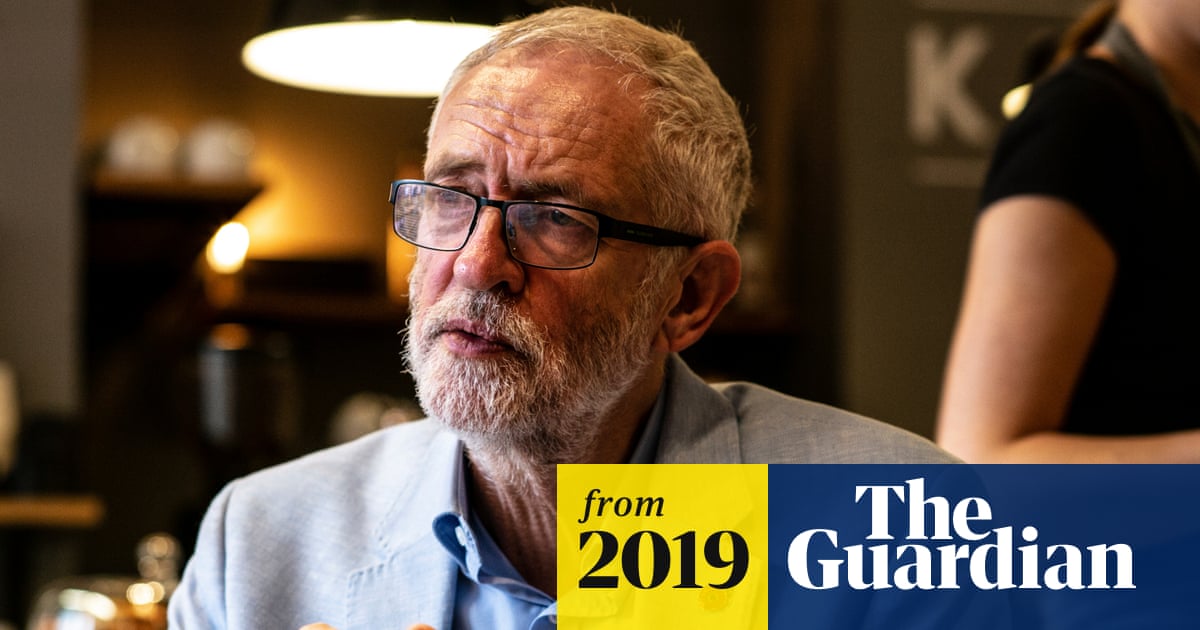 Exclusive: Labour leader says debate is over as he seeks to shift focus to social justice and climate
Exclusive: Labour leader says debate is over as he seeks to shift focus to social justice and climate
Corbyn tells shadow cabinet to fall in line which isn't really that surprising
Mothercare becomes the latest high street brand to collapse
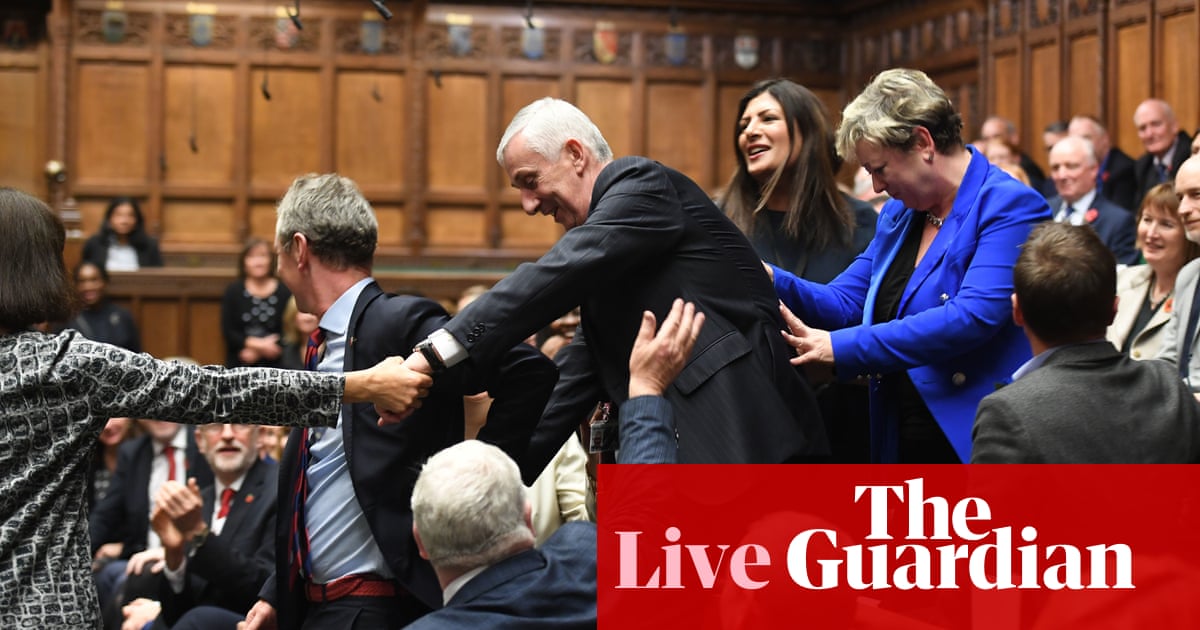 Rolling coverage of the day’s political events as they happen, including 2019 general election campaigning
Rolling coverage of the day’s political events as they happen, including 2019 general election campaigning
Rees-Mogg says Farage should retire rather than risk killing Brexit. Farage believes the Brexit Parry will damage Labour but experts have projected that the Tories will be the ones most hit by the Brexit Party.
 Boris Johnson faces a double threat to his Downing Street hopes today — a new poll shows Labour has enjoyed a bounce in support since the election campaign began, and remain parties have finalised an electoral pact to thwart him.A YouGov survey for The Sunday Times found that Labour had gained si
Boris Johnson faces a double threat to his Downing Street hopes today — a new poll shows Labour has enjoyed a bounce in support since the election campaign began, and remain parties have finalised an electoral pact to thwart him.A YouGov survey for The Sunday Times found that Labour had gained si
A new Yougov poll after the GE campaign began shows that the Tories have gained 3 points after the Brexit Party voting support halved whereas the Labour Party gained six points as the Lib Dems fell by 3. This gave the Tories a 12 point lead.
A second poll by ORB international reduced the tories lead to 8 points over Labour whilst a third from Opinium showed a 16 point Tory lead suggesting polls may end up once again being unreliable. A Remain alliance excluding Labour is expected to be revealed tomorrow which will narrow voting options to try and force a tighter squeeze on Leave seats.
Comment

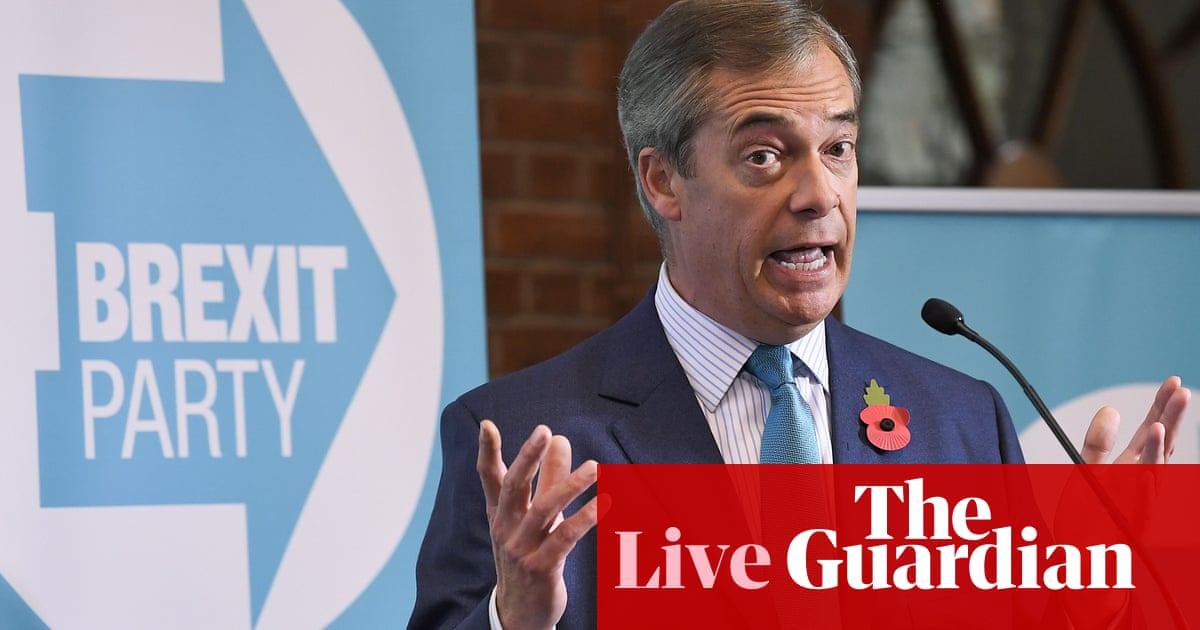
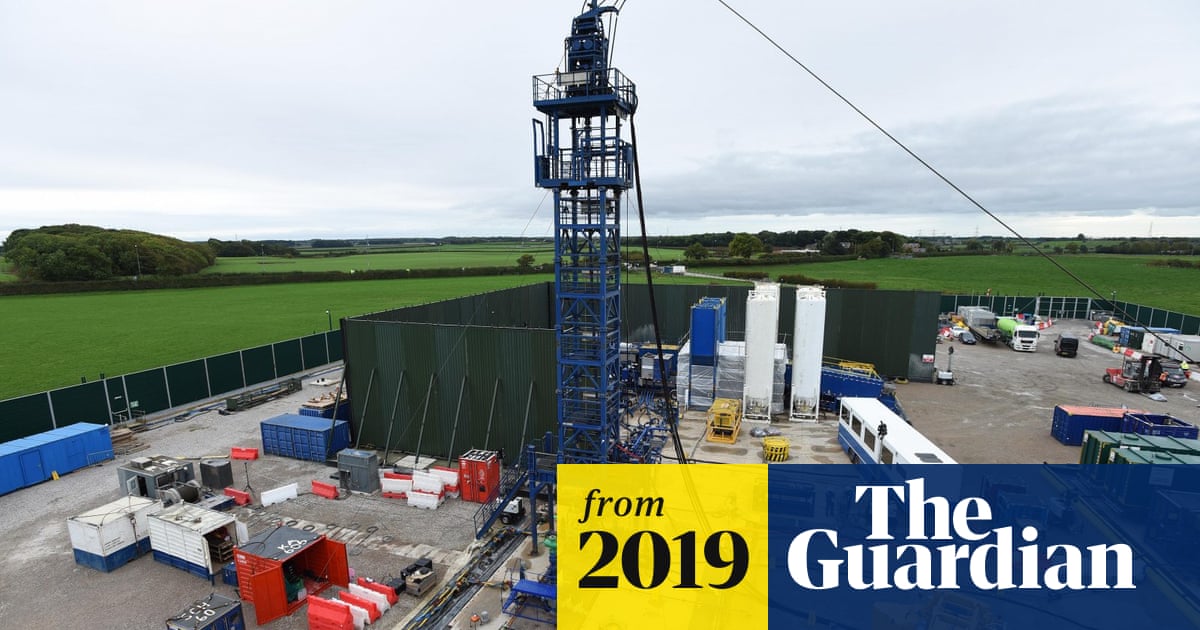
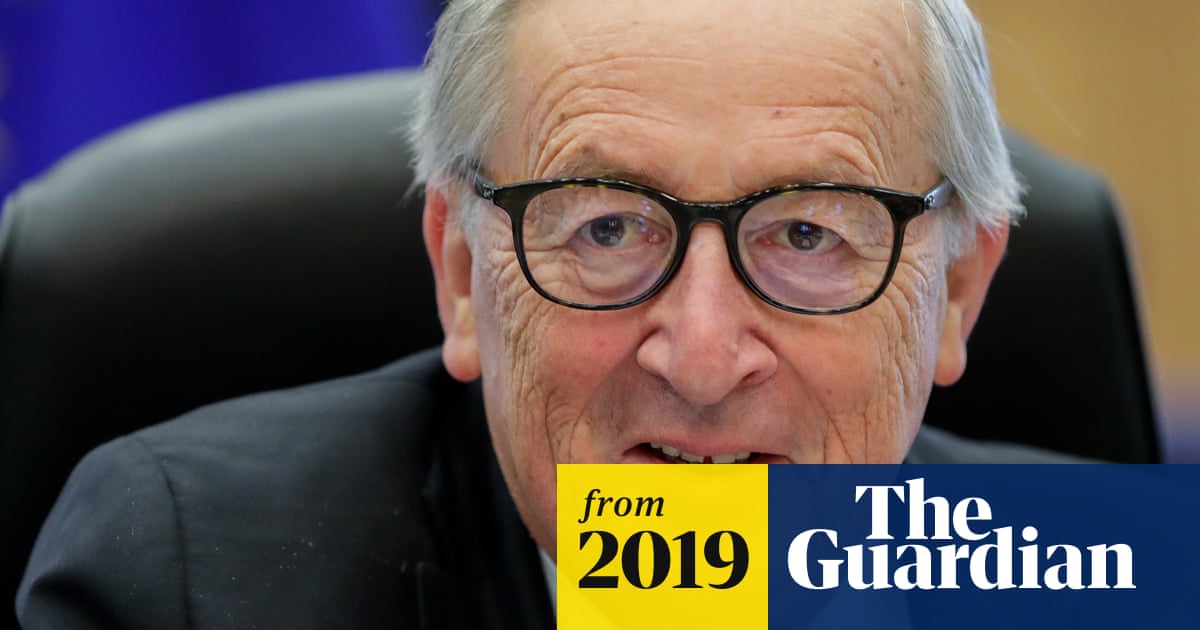
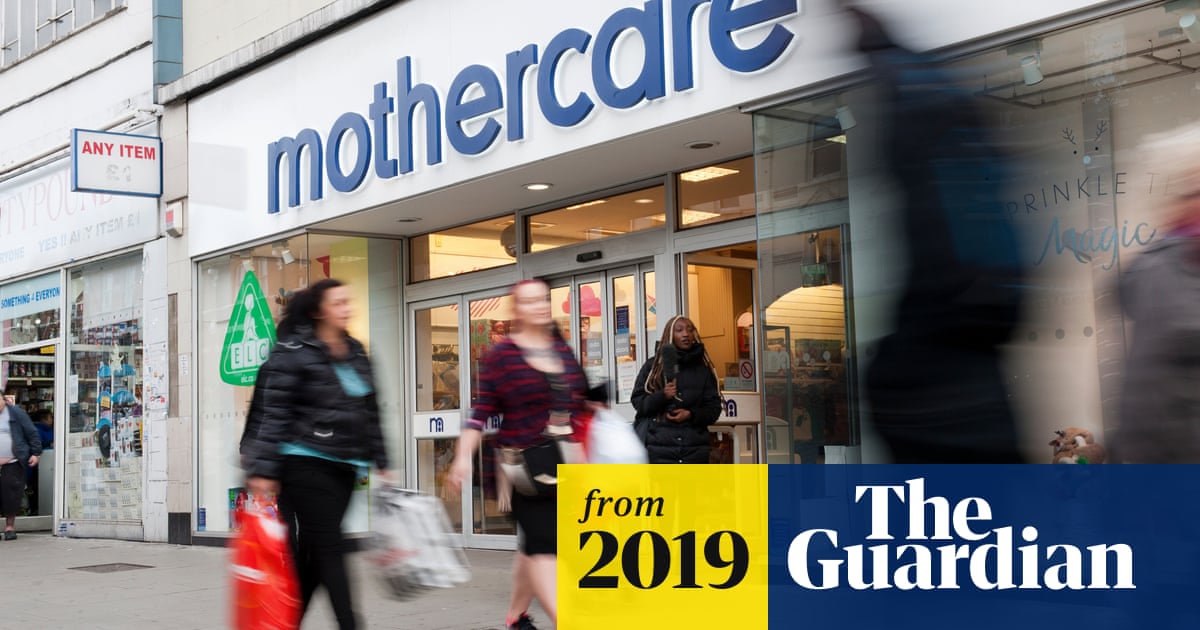
Comment